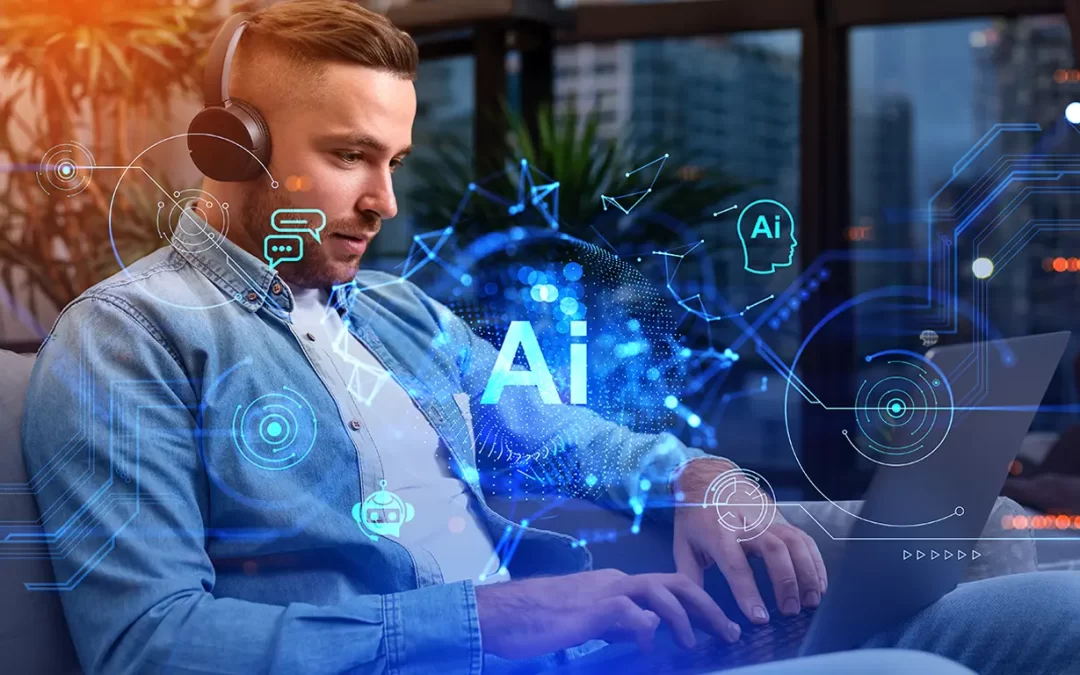In the ever-evolving landscape of technology, two prominent fields, Artificial Intelligence and Machine Learning, have risen to prominence, revolutionizing industries, enhancing user experiences, and reshaping the future. This article explores the fascinating realm of Artificial Intelligence and Machine Learning, shedding light on their significance, applications, and impact.
Introduction: The Power of AI and Machine Learning
Artificial Intelligence (AI) and Machine Learning are at the forefront of technological innovation, promising groundbreaking possibilities that were once considered science fiction. This article delves into their fundamental concepts and how they work.
What is Artificial Intelligence (AI)?
Artificial Intelligence refers to the development of computer systems that can perform tasks that typically require human intelligence, such as understanding natural language, recognizing patterns, and solving complex problems.
Understanding Machine Learning
Machine Learning is a subset of AI, focusing on the development of algorithms that enable computers to learn from and make predictions or decisions based on data. It’s like teaching a computer to improve itself through experience.
The Evolution of AI and Machine Learning
The journey of AI and Machine Learning dates back to the 20th century when researchers began experimenting with neural networks and rule-based systems. Explore the evolution of these fields.
A Historical Perspective
- Early AI: The birth of AI with Alan Turing’s concepts and the Dartmouth Workshop.
- AI Winter: The ups and downs in AI development during the 70s and 80s.
- The Renaissance: The resurgence of AI with advancements in the 21st century.
Rise of Machine Learning
- Pioneering Algorithms: Discussing early ML algorithms like linear regression and decision trees.
- Big Data Revolution: The impact of enormous datasets on machine learning.
- Deep Learning: The breakthroughs in neural networks and deep learning models.
AI and Machine Learning in Everyday Life
AI and Machine Learning have infiltrated our daily routines, making life more efficient, convenient, and exciting. This section explores their presence in various aspects of our lives.
Personal Assistants and Chatbots
- How AI powers voice assistants like Siri and Alexa.
- The role of chatbots in customer service and support.
Healthcare and Diagnosis
- Machine Learning’s role in medical image analysis.
- Predictive healthcare through AI algorithms.
E-commerce and Recommendations
- How AI suggests products on e-commerce platforms.
- The use of recommendation systems.
Autonomous Vehicles
- Self-driving cars and the AI technologies behind them.
- The future of transportation.
Industry Transformations with AI and Machine Learning
The business landscape is witnessing a profound transformation with the integration of AI and Machine Learning. Explore how these technologies are shaping industries.
Finance and Banking
- Fraud detection and risk assessment with AI.
- Algorithmic trading in financial markets.
Manufacturing and Robotics
- AI-driven automation and robotics in factories.
- Quality control through machine learning.
Marketing and Customer Insights
- Targeted marketing and personalized experiences.
- Analyzing customer behavior using AI.
The Ethical and Privacy Dilemma
As AI and Machine Learning expand their reach, concerns about ethics and privacy have emerged. Discuss the ethical dilemmas and privacy challenges faced by these technologies.
Data Privacy and Security
- The importance of protecting personal data in the digital age.
- The role of AI in cybersecurity.
Bias and Fairness
- Addressing biases in AI algorithms and models.
- Ensuring fairness and inclusivity in AI applications.
Conclusion: The Future with AI and Machine Learning
In conclusion, Artificial Intelligence and Machine Learning have transcended their infancy and are now integral to our lives. The future holds exciting prospects and challenges as these technologies continue to advance and reshape the world.
Unlocking New Horizons
AI and Machine Learning are no longer just buzzwords; they are shaping the future. Stay informed and embrace the opportunities they offer.
Frequently Asked Questions (FAQs)
Q1: How do AI and Machine Learning differ from traditional programming?
Traditional programming relies on explicitly written instructions, while AI and Machine Learning involve learning from data and making decisions based on patterns and experiences.
Q2: What are some real-world examples of AI in healthcare?
AI is used in healthcare for disease diagnosis, drug discovery, and predicting patient outcomes. For instance, IBM’s Watson helps oncologists make treatment decisions.
Q3: How can businesses implement AI for better customer experiences?
Businesses can use AI for chatbots, personalized recommendations, and data analysis to understand customer preferences and offer tailored experiences.
Q4: Is there a dark side to AI and Machine Learning?
Yes, AI can perpetuate biases present in data, and there are concerns about job displacement due to automation. Ethical considerations are crucial.
Q5: What’s the future of AI and Machine Learning?
The future holds limitless possibilities, from enhanced AI-powered medical diagnoses to self-driving cars, and even AI-generated creative content.


Recent Comments